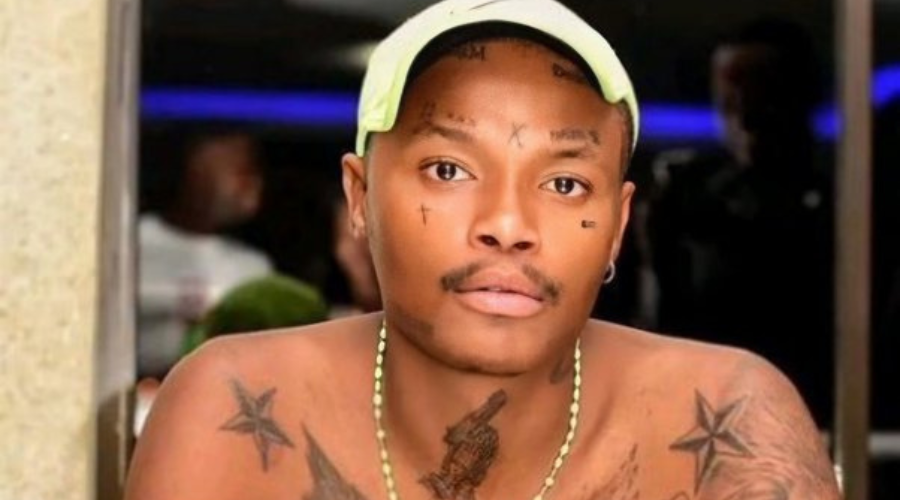Shebeshxt, the rising Limpopo-based artist, has come under intense scrutiny after a video surfaced online showing him behaving erratically behind the wheel, allegedly under the influence of alcohol. The footage, which quickly went viral, has sparked a wave of criticism on social media platforms, particularly X (formerly Twitter), where users expressed their dismay at the singer’s reckless behavior. This comes months after Shebeshxt was involved in a devastating accident that left him physically scarred and, more tragically, caused the death of his daughter. Despite this profound personal loss, his recent actions have raised questions about his judgment and responsibility as a public figure.
The video of Shebeshxt’s apparent drunken driving ignited an outpouring of frustration among viewers, many of whom expressed disbelief that he would engage in such dangerous behavior given the personal tragedy he had endured. Some social media users pointed to his history, wondering why he had not faced legal consequences for the accident that claimed his daughter’s life. These comments have fueled a growing perception that the singer, despite his fame, has managed to evade accountability, particularly regarding his past actions. For many, this latest incident of reckless driving has added to their concerns about his character and responsibility as a role model.
One particularly harsh critique came from a user who remarked, “He won’t survive his next accident,” highlighting the perilous nature of driving while intoxicated. This statement reflects the anxiety many fans feel about the potential for further harm, especially considering the gravity of his previous crash. Others expressed frustration at the seeming lack of consequence for Shebeshxt’s behavior, particularly in light of the tragic death of his daughter. The comment, “I wonder why the state failed to prosecute Shebeshxt for his daughter’s murder! Honestly, justice for the elites,” speaks to a larger public sentiment of skepticism about the legal system and its treatment of high-profile individuals.
Further fueling the backlash, some critics accused the artist of showing a shocking lack of remorse or reflection following his daughter’s death. “Drink and driving again. The death of his daughter is not that painful to him,” one user remarked, suggesting that his actions revealed a disturbing indifference to the pain caused by the tragedy. The callousness implied in such comments underscores the frustration many feel when public figures seem to repeat destructive behavior without facing serious repercussions. For many, the video is a stark reminder that, despite his popularity, Shebeshxt has yet to demonstrate personal growth or a commitment to making amends for his past mistakes.
Others took to social media to condemn Shebeshxt as a negative influence, particularly on young fans who look up to him as a role model. One user lamented, “This boy is a disgrace. If anything, he should have long been cancelled. He is a terrible role model to young boys.” The reference to “304” and a comparison to another controversial figure, Cyan Booje, pointed to a growing concern over the type of behavior that is being celebrated or tolerated within South Africa’s entertainment industry. Critics argue that the promotion of such figures as role models perpetuates a culture of irresponsibility, recklessness, and poor decision-making, which can have serious consequences for impressionable youth.
As the conversation around Shebeshxt continues to evolve, it is clear that his actions have struck a nerve with the public. His personal struggles, coupled with his apparent disregard for the law and his own well-being, have ignited a broader debate about accountability in the entertainment industry. Public figures like Shebeshxt carry a unique responsibility to serve as positive influences, particularly when they have the power to shape young minds. Until he addresses both his past actions and his present behavior, it seems unlikely that the criticism will subside. Instead, it serves as a sobering reminder of the impact that celebrities can have—both good and bad—on the public consciousness.
